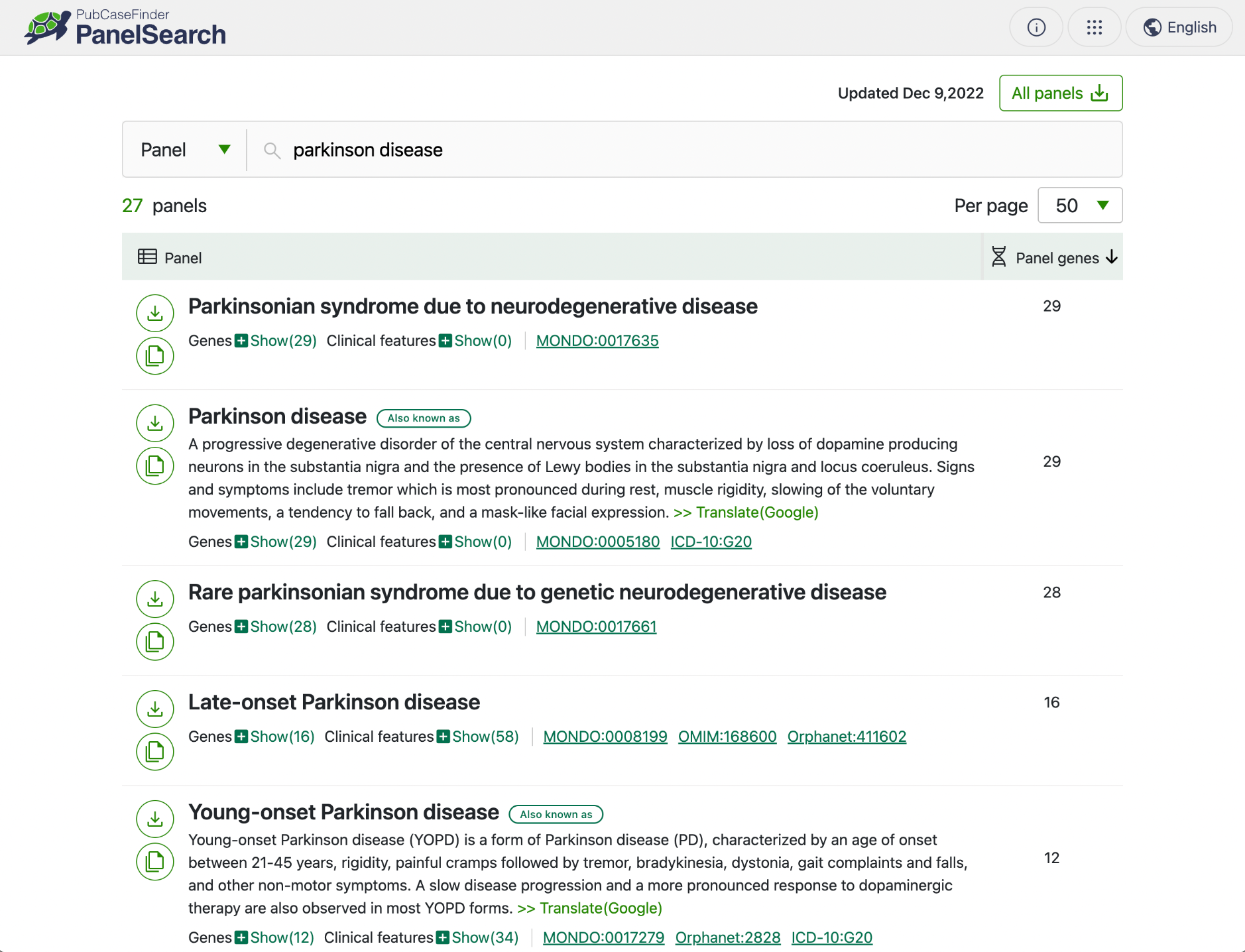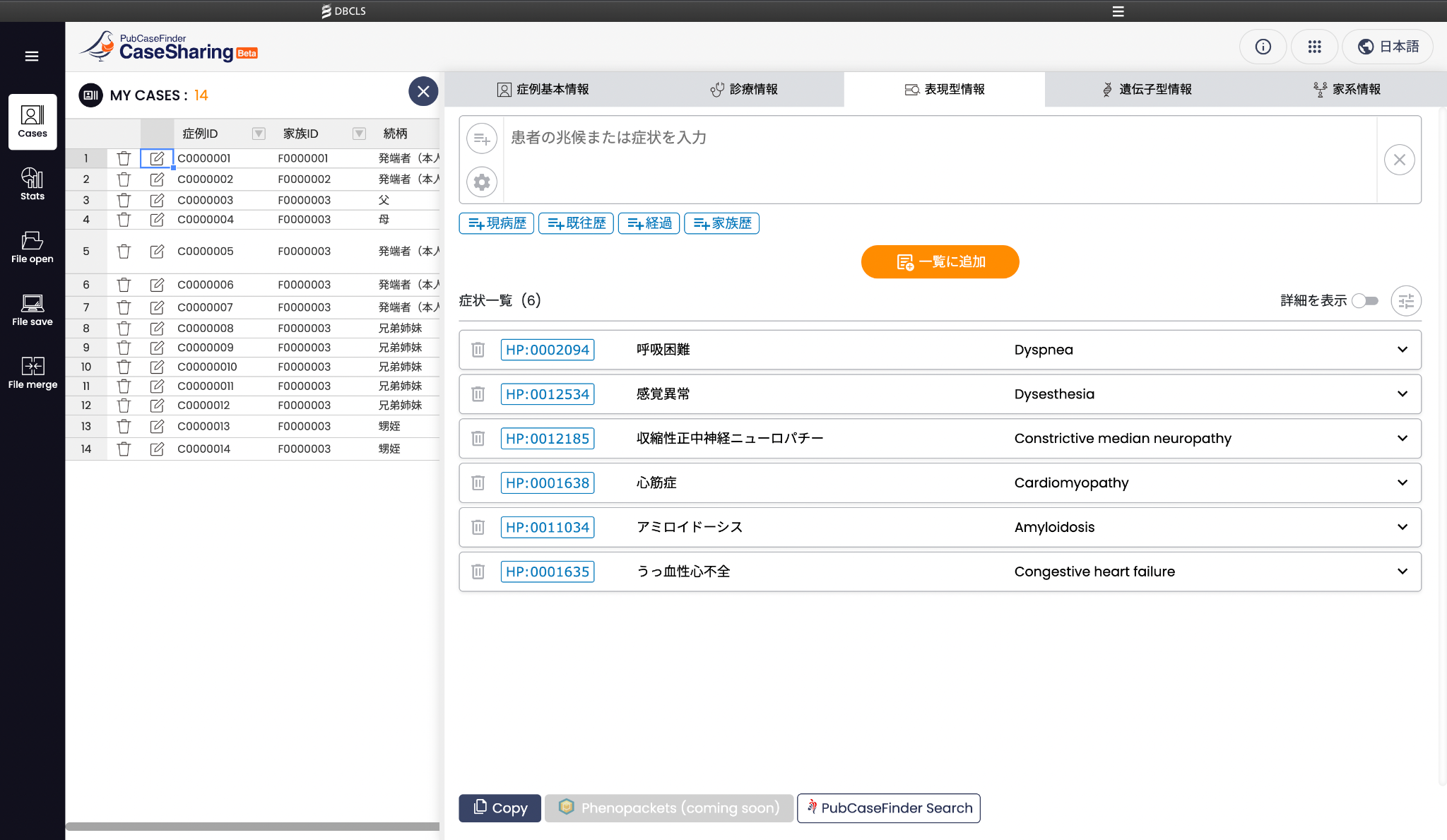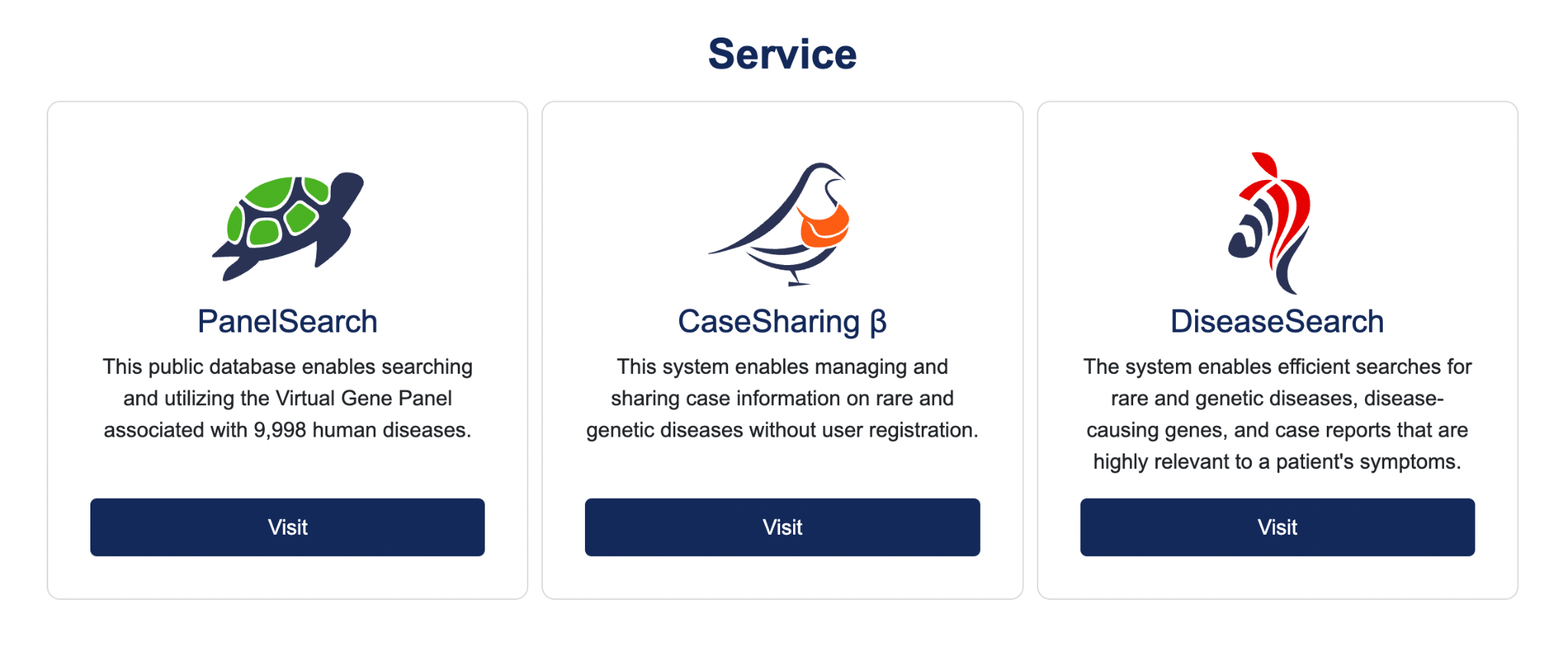“PanelSearch” and “CaseSharing” have been released as new functions of PubCaseFinder.
2023. 07. 28 /
On July 1, 2023, DBCLS added new functions “PanelSearch” and “CaseSharing” to PubCaseFinder.
PanelSearch
https://pubcasefinder.dbcls.jp/panelsearch
CaseSharing
https://pubcasefinder.dbcls.jp/casesharing
About PanelSearch
PanelSearch is a publicly-available database that allows users to search and utilize gene panel data associated with 9,998 rare and genetic diseases in humans (Figure 1). It has the following features.
- The gene panel data can contribute to the efficient clinical interpretation of genomic sequences. For more information, please refer to the following reference.
- Shin, J. M., Fujiwara, T., & Yamaguchi, A. (2023). Ontology‐based expansion of virtual gene panels to improve diagnostic efficiency for rare genetic diseases. https://ceur-ws.org/Vol-3415/paper-10.pdf
- Users can search gene panel data by disease names or gene names and download it. In addition, all 9,998 gene panel data can be downloaded at once.
- Based on the Monarch Disease Ontology (Mondo), which includes many rare and genetic diseases, we have constructed gene panel data that automatically summarize disease-causing genes for each disease. By using the disease hierarchy information in Mondo, we have also automatically constructed gene panel data for disease groups such as Mendelian disease.
 Figure 1. Results of searching gene panel data by disease name
Figure 1. Results of searching gene panel data by disease name
About CaseSharing
CaseSharing is a function for registering and managing case information on rare and genetic diseases accumulated by users (Figure 2). Case information on rare and genetic diseases is an indispensable resource for research on diagnosis, treatment, and drug discovery, but the cases themselves are rare and need to be continuously collected at multiple facilities. For this purpose, a system which is convenient for multiple facilities and users to access, and which can store and manage case information in a common format without ambiguous descriptions is desired. CaseSharing can be used by anyone with access to the Web and provides an easy way to register and manage case information in a common description and format. In addition, users can combine case information accumulated at multiple facilities. CaseSharing has the following features.
- Users can use CaseSharing without user registration.
- Case information is stored on the user’s own computer, not in the cloud.
- CaseSharing will be compatible with Phenopackets and OMOP, which are international case information sharing formats.
- CaseSharing supports English, Japanese, Korean, and Chinese languages to facilitate case information sharing with users around the world.
 Figure 2. CaseSharing at a glance
Figure 2. CaseSharing at a glance
Future of PubCaseFinder
PubCaseFinder has been operated as a Web service that provides the search function for rare and genetic diseases. With the addition of PanelSearch and CaseSharing, the existing search function will be renamed as DiseaseSearch. PubCaseFinder will be the generic name for these three Web services.
 Figure 3. Three Web services offered by PubCaseFinder
Figure 3. Three Web services offered by PubCaseFinder